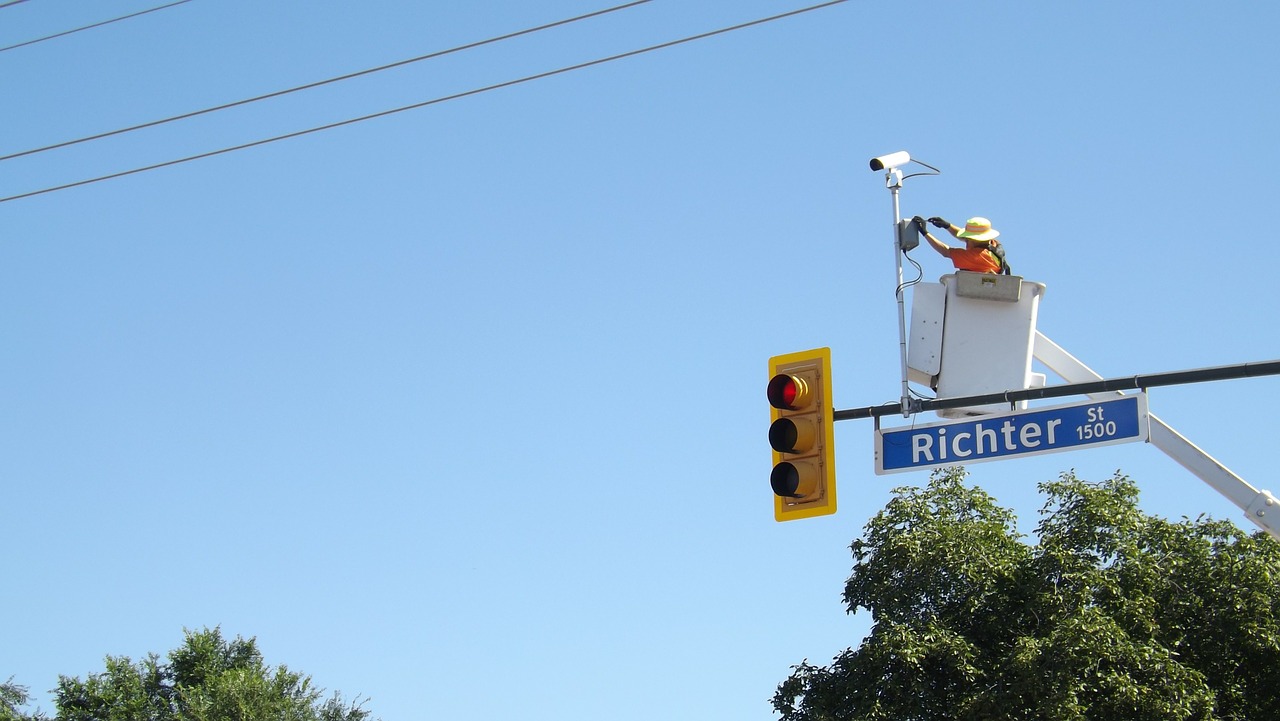Traffic cameras may be essential for road safety, but as a driver, you need to know how to navigate the balance between public safety and surveillance.
Across the US, traffic cameras have become a ubiquitous presence on roads.
However, their widespread use has raised significant questions about privacy, individual rights, and the balance between safety and surveillance.
Used to monitor red-light violations, speeding, and other infractions, these systems are designed to improve traffic safety and ensure compliance with laws.
Yet, while their use may be questionable, there’s no denying they are effective.
Reports from the Insurance Institute for Highway Safety (IIHS) indicate that red-light cameras can reduce fatal crashes at intersections by as much as 21%.
Speed cameras have also proven highly effective in enforcing speed limits in high-risk areas like school zones or construction zones. Based on U.S Department of Transportation Federal Highway Administration reports, these cameras have reduced crashes on urban roads by up to 54% for all crashes and 48% for injury crashes.
Despite these benefits, the use of traffic cameras remains controversial due to concerns about accuracy, fairness, and privacy. Critics argue that these systems can sometimes issue tickets unfairly, while privacy advocates warn of potential misuse of the data collected by these systems.
Similar to many other road-related laws, the legal status and use of traffic cameras vary significantly across the United States. While some states embrace this technology as a tool for improving safety, others have banned or limited their use.
According to the Governors Highway Safety Association (GHSA), nineteen states and the District of Columbia have passed laws permitting the use of speed cameras, while nine states have laws prohibiting them. Similarly, 22 states and the District of Columbia allow red-light cameras, but eight states have enacted laws banning their use.
At the federal level, the Fourth Amendment of the U.S. Constitution protects individuals from unreasonable searches and seizures. This principle has been at the center of ongoing legal debates about whether traffic cameras and related surveillance technologies, such as Automated License Plate Readers (ALPRs), violate citizens’ constitutional protections.
A notable example is a federal lawsuit filed in Norfolk, Virginia, which is challenging the use of Flock Safety’s ALPR cameras. The plaintiffs argue that these systems amount to warrantless surveillance and infringe on Fourth Amendment rights by tracking individuals’ movements without judicial oversight. Once decided, the outcome of this lawsuit could set a critical precedent for how ALPRs and similar technologies are regulated, particularly in balancing public safety with privacy.
The deployment of traffic cameras also raises several privacy concerns, particularly regarding how driver’s personal data is collected, stored, and used. Traffic cameras often rely on ALPRs to identify vehicles involved in infractions, and these systems capture and store license plate data, sometimes for extended periods, even if the driver has not committed any violation. They also often capture an image of the driver and passengers’ faces, which is a concern in the age of biometrics and facial recognition technology, where abuse could lead to serious ramifications and potential identity theft.
Numerous people have also voiced major concerns about the misuse of traffic camera data. Without adequate safeguards in place, the information collected by these systems can potentially be accessed or used improperly, which increases the risks for abuse. Based on this, privacy advocates are emphasizing the need for robust policies and oversight to prevent unauthorized or unethical use of collected data.
In this regard, data retention policies for traffic cameras also vary widely across jurisdictions. Some cities retain footage or license plate data for only a few days, while others store it for months or even years. However, retaining data beyond its immediate purpose of enforcing traffic laws increases the potential for misuse or unauthorized access, heightening concerns among privacy experts and civil rights organizations.
Traffic Cameras & Your Rights
As a driver, understanding your rights is crucial when navigating the legal and privacy implications of traffic cameras.
The right to contest citations

If you receive a citation from a traffic camera, you have the right to contest it in court. This is particularly important in cases where you believe the citation was unfairly issued or based on inaccurate evidence. In most jurisdictions, the citation will include a link to a website where you can view the photographic or video evidence used to issue the ticket.
The right to privacy
While traffic cameras operate in public spaces, there are still legal limits on how the data they collect can be used. Most states have laws restricting the sharing of ALPR data with private companies or outside law enforcement agencies. So, if you suspect your data has been mishandled, you may be able to file a complaint with your local or state government and receive compensation.
The right to know camera locations
In many states, jurisdictions are required to notify the public about the presence of traffic cameras. For example, California law mandates that any jurisdiction using traffic cameras must notify the public by posting signs within 200 feet of the camera. In some cities, you can easily access maps or lists of camera locations online that are designed to allow drivers to plan their routes based on this information.
The right to access footage in the event of an accident
Accessing traffic camera footage for proof in an accident largely depends on local jurisdiction policies and whether the cameras are operated by city or state agencies or third parties. The availability and procedures for viewing footage vary by state and agency. In some cases, the footage may be available for public or legal use or accessed via online traffic systems. Alternatively, an attorney specializing in road accidents may have to assist you in submitting a formal request or subpoena, especially if the footage is stored for limited durations.
Overall, traffic cameras serve a vital role in improving road safety, reducing the likelihood of road accidents, and enforcing traffic laws. However, their use raises important questions about privacy and individual rights that still require addressing and regulation.


Join the conversation!